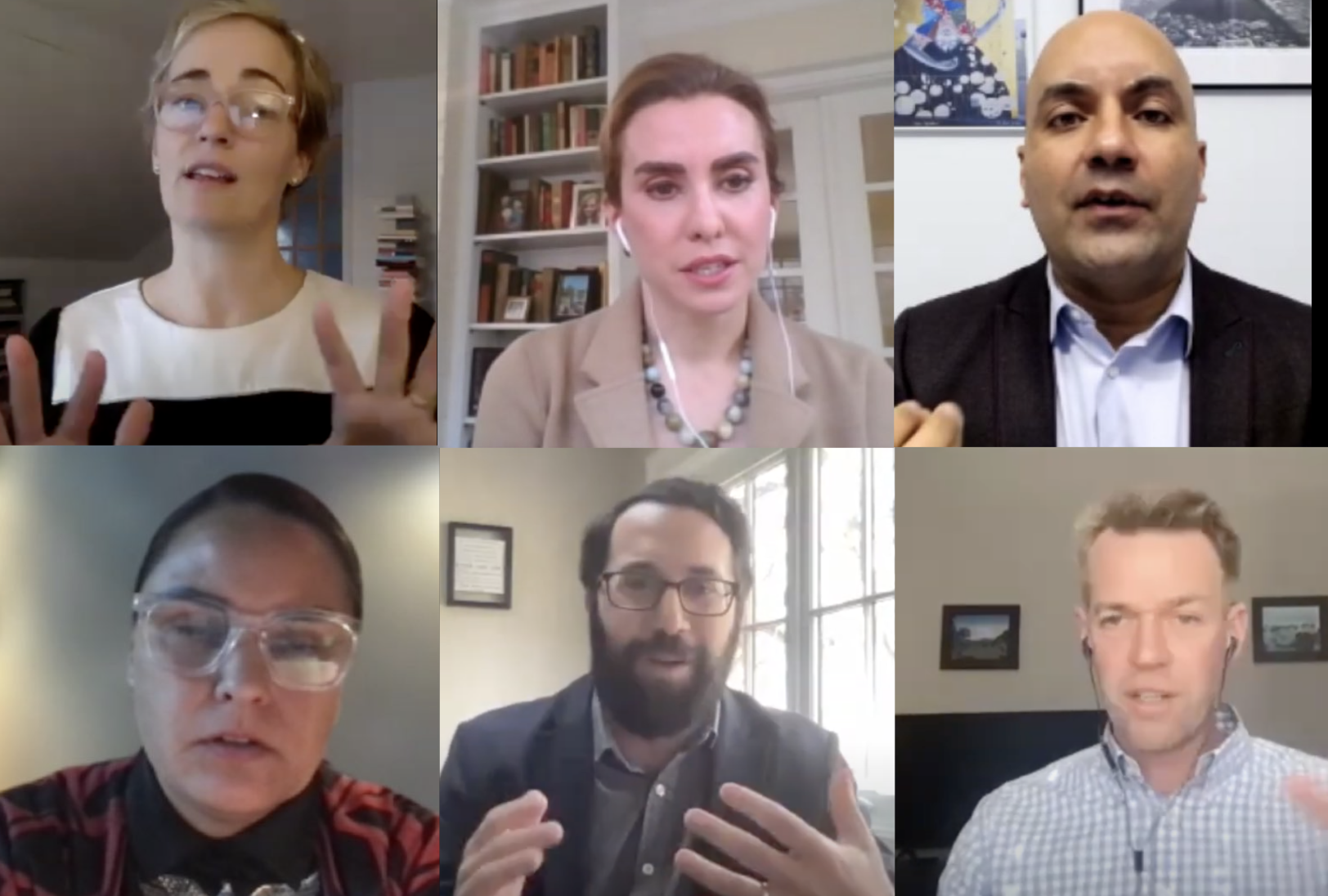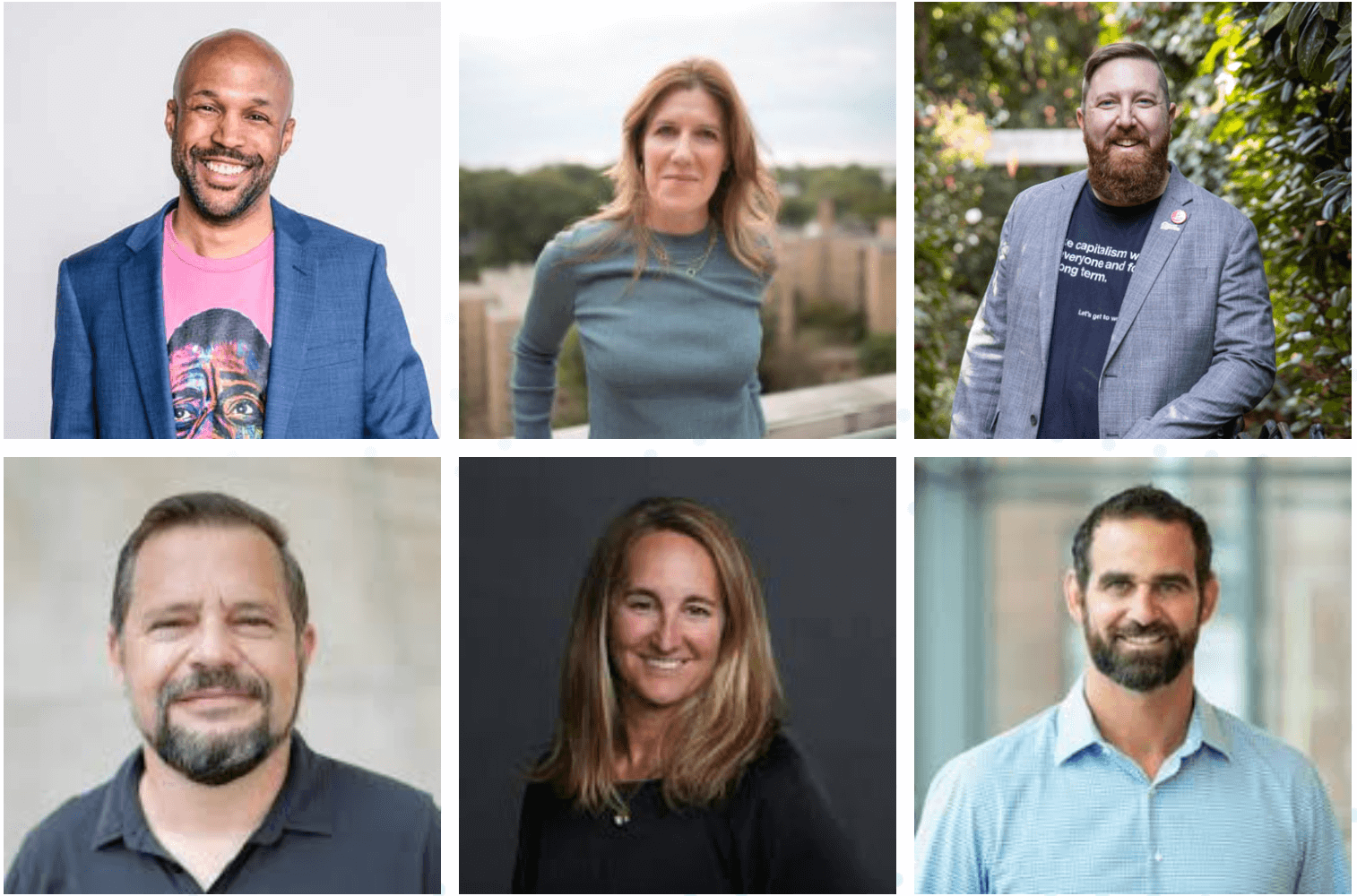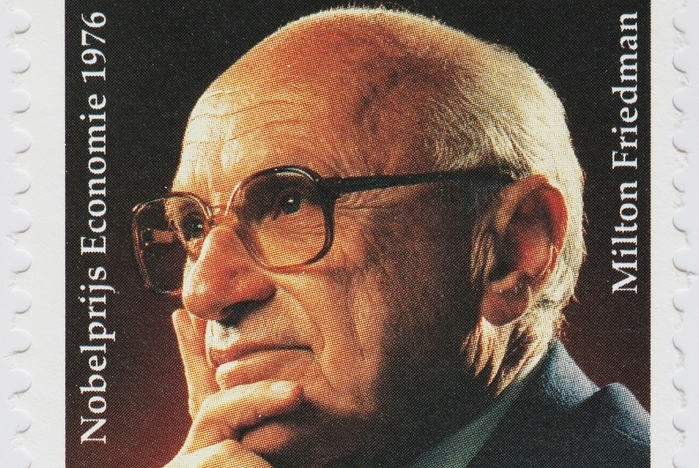ImpactAlpha, Dec. 3 – The New Capitalism Project has over the past two years dissected the failings of the current system and crafted a shared vision of a better future.
Next up for the project’s diverse “design team” of a dozen leaders and activists: a set of concrete ideas to overcome barriers to a more inclusive economic system.
Among the ideas in play: A radical decentralization of power in corporate governance and an acceleration of capital flows into inclusive and sustainable business models.
“We’ve seen real diversity of actors increasing their focus on structural economic change in the last decade, but particularly in the last few years,” Chris Jurgens of Omidyar Network, a funder of the effort along with the Ford and Rockefeller foundations, said on ImpactAlpha’s Agents of Impact Call: Capitalism Reimagined.
Some leaders and organizations in the group are confronting power with campaigns, demonstrations and grassroots organizing. Others are building bridges across differences by emphasizing collaboration, nudging behavior-change and rewarding best practices.
“A group of us saw this diversity of engagement as a real strength and opportunity but also recognized the field is still pretty young, pretty fragmented and in some cases working in silos,” said Jurgens.
Systems change “requires us to launch not isolated interventions but much more coordinated interventions, and to do so simultaneously” said Anna Muoio, the consultant who is leading the effort under the banner of The New Capitalism Project. Muoio, Jurgens and other participants in the 18-month design project provided an exclusive briefing of their findings to ImpactAlpha subscribers.
Stakeholder governance
The ideas the project will propose for collaborative funding early next year were vetted to ensure they create momentum towards that shared vision, addressed at least one of the identified barriers and, importantly, require the collaboration of more than one organization to implement.
One idea that’s taking hold is support for a “multi-movement engine” to take on concentrations of power in corporate governance. As it stands, decisions made by a few major asset managers like BlackRock, State Street and Vanguard, have outsized impact on global issues such as gender equity, climate change, racial and economic justice.
“There’s no transforming capitalism without confronting harmful corporate behavior and there’s no confronting corporate behavior without taking on the structures of how we hold corporations accountable,” said Majority Action’s Eli Kasargod-Staub.
A Majority Action-led mobilization of grassroots organizations in the aftermath of the 2020 racial justice uprisings led to racial equity audits at BlackRock and State Street, which are among the largest shareholders in nearly all of the companies in the S&P 500.
The successful campaign demonstrates that efforts to shift corporate power are already happening, says Kasargod-Staub, “just nowhere near the scale of what’s possible.”
Inclusive models
The design team was intentionally selected to include both inside-game and outside-game leaders and organizations. Along the axes from confrontation to collaboration and from destruction to creation, they identified four archetypes: Warriors, Entrepreneurs, Missionaries and Lovers.
Kasargod-Staub identified as a warrior, while Meredith Sumpter of the Coalition for Inclusive Capitalism considered herself more of a lover. Also on the call were Amit Bouri of the Global Impact Investing Network and Carol Anne Hilton of the Indigenomics Institute.
They were representing the larger design team, which includes B Lab’s Andrew Kassoy; Amalgamated Bank’s Bill Dempsey; SEIU’s Edgar Hernández; Fran Seegull of the U.S. Impact Investing Alliance; Imperative 21’s Jay Coen Gilbert; Jeremie Greer of Liberation in a Generation; PolicyLink’s Mahlet Getachew; and Rodrigo Garcia from the office of the Illinois state treasurer.
Bouri detailed another idea gaining steam: supercharcharging the funding ecosystem for alternative business models to build regenerative products and services, share ownership with employees, democratize governance and value their relationships with nature and communities.
“How do we capitalize solutions of the future today, at a scale that will allow them to succeed, to thrive?” asked Bouri.
Rather than tinker at the margins of legacy businesses, he said, “What if we were putting hundreds of millions or billions of dollars into those alternative models that are going to be the models of the future?”
One output of the push could be a $1 billion hybrid investment fund and incubator to support leaders in exploring radical new business models. Bouri acknowledged the many organizations and activities already building such models.
“The goal here is to aggregate that in a way where it’s much more coordinated, but also that it’s moving capital at a much greater scale.”











